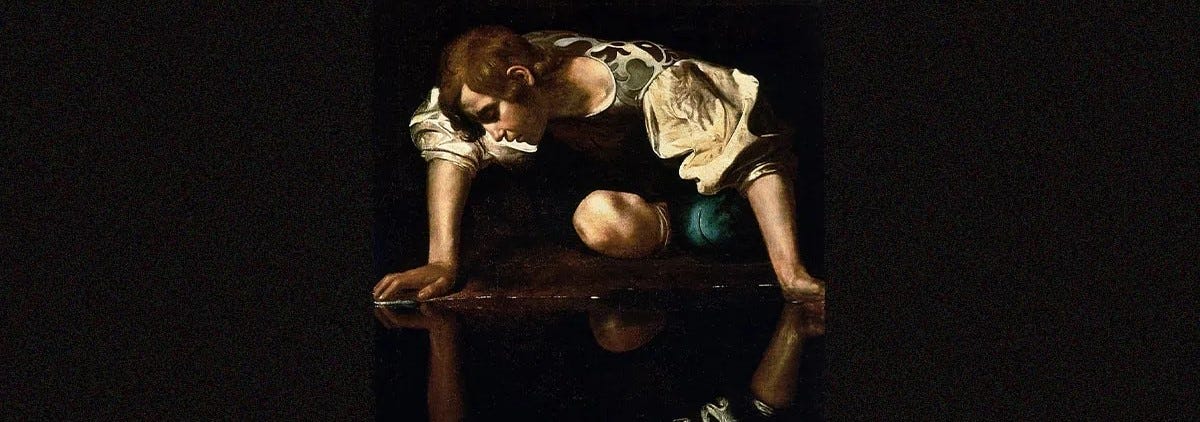It is a great misfortune to view oneself as weak. For some people, to see themselves as weak is foreign and impossible to imagine. For many others, however, days are spent in a hollow haze as they hesitantly stumble through life, tragically believing themselves to be helpless and incapable. It is one thing to be called a coward, pathetic, or worthless, but it is another thing entirely to believe oneself to be such. The denial of one’s inherent strength in favor of negative self-perceptions is a harsh reality, yet is one often ignored, mocked, and even enabled by our society.
In this day and age, viewing oneself as mentally weak and incapable is ingrained in our culture. We are expected to see ourselves as victims of oppression, much to the mockery of opponents who feed our perceptions of weakness through their scorn and ignorance. Specifically, in the case of the last three generations—Millennials, Gen Z, and Gen Alpha—stereotypes of weakness were assigned to its members before they were even old enough to deny it. Because of this, hundreds of millions were raised internalizing the idea that they are weak. This quickly turned into grand, generation-wide self-fulfilling prophecies of learned helplessness. Identification with mental illness, dysfunction, chaos, and instability has proven to be widely popular—even expected—among this stratum, creating a culture that has come to impact older generations by convincing our elders that they, too, are weak or exacerbating the self-perceptions of weakness that were already there.
We live in a toxic, soul-killing culture of self-proclaimed weakness.
The only way out, it seems, is rebellion.
We begin our identity formation at birth. Our environment, health, genes, diet, experiences, temperament, preferences, relationships, memories, and a litany of other factors serve to form our sense of self. Our understanding of ourselves is ever-changing, fluctuating through periods of concrete assuredness and meandering confusion. Further, our perceptions of self can shift positively or negatively at any time due to events, trauma, or even by simply reading and internalizing words on a page. These shifts are more pronounced the flimsier one’s understanding of self is.
This is, no doubt, obvious to many reading this, but is part of understanding the “weakness” of today’s populous. In a world of hyper-consumption, intense sensory overload, and the gradual destruction of ideals that once guided and grounded humanity, the self for many is constantly under attack and is prone to dramatic shifts in confidence, beliefs, and an understanding of truth itself.
In fact, part of having a balanced sense of self is to have an alignment between perception and reality. For those who grow to see themselves as weak, broken, or helpless, however, this isn’t the case.1 This misalignment can cause us to see ourselves as worthless, unworthy of praise, or undeserving of love, even though we may be devoted parents, pillars of our communities, generous, or gifted.
In many cases, this chasm between perception and reality is created via external reactions and experiences. We may at first believe ourselves to be strong, intelligent, resourceful, kind, or bearing any other sort of positive traits, but through a series of negative encounters with others, their opinions, and their actions, our sense of self can be altered for the worse. This is not to say that all negative encounters automatically damage the sense of self. In fact, many such experiences can serve to strengthen our resolve toward our internalized positive perceptions.
However, when a person is subjected to consistent attacks on the self—even a single attack from a source they view highly, such as a parent—these negative outlooks can become internalized. Once this happens, a person begins to doubt their former, more positive sense of self, which increasingly seems to be a falsehood. Instead, their sense of self shifts negatively, and they begin to believe that they are faulty in some way. Many will even begin to act in accordance with their newfound identity of weakness, creating a self-fulfilling prophecy of negativity and justifying previous attacks on the person in question. For example, a once well-behaved boy may embrace delinquency if he is outwardly convinced he is “bad”; a girl struggling with algebra may see her entire academic performance decline if she is convinced by others that she is “stupid”; and a suffering man’s condition may grow worse if he internalizes that his suicidal tendencies are not worthy of understanding but are the highest form of “cowardice.”
For those who are still developing their sense of self and/or whose perceptions are in flux, this internalization process happens more rapidly and can have more drastic outcomes. This is to no fault of the struggling person in question, but rather on the of a suffocating, life-draining world that claims to admire strength and courage but demands the “weak” be belittled and ignored—or, conversely, coddled and affirmed in their negative perception of self.
As mentioned before, negative perceptions of the self are often not rooted in reality—we are likely not as bad as we think we are, not truly. Our subconscious understands this. Sensing the dissonance between perception and objective reality, sometimes acutely, the subconscious can quickly become distressed, creating the desire to find realignment.
Successful attempts at realignment result in people recognizing the faults in their thoughts, and can result in a deeper appreciation of the self, one’s strengths, how to avoid misalignment in the future, etc.
Unsuccessful attempts, however, only result in a greater misalignment between perception and reality. Self-fulfilling prophecies only continue as one adopts self-destructive and/or socially unacceptable behaviors congruent with their false sense of weakness. Any strengths or virtues one may have are buried, creating a deeper sense of self-loathing and bitterness toward society. The state of mental weakness grows as we concede, and eventually embrace, defeat in the eyes of a world that claims to adore strength but operates with no mercy.
One way we see this defeat displayed and confirmed is in our use of language. A “depressed teen” is vastly different than a “teen who struggles with depression.” The former is the language of defeat, connoting that the teen is depressed first and an individual second. It associates them with all of the stereotypes, stigma, and guilt that come with depression—unnecessary baggage that adds to the youth’s already low sense of self. The latter, meanwhile, shows a spirit of acceptance of the struggle and yet the desire to overcome. This is particularly prevalent in the realm of personal identification. For the youth who describes themself as “struggling with depression,” they display a rejection of defeat—regardless of what society has demanded of them. They have a willingness to be free, and it is shown through their speech.
I point this out specifically because humans are expressive creatures. How we express ourselves inwardly (i.e., thoughts) and outwardly (i.e., dress, communication, actions, etc.) serves to shape and alter how we are perceived by both ourselves and others. When we begin to identify with our weaknesses—outwardly and inwardly, in speech, action, and thought—it serves to harm both our reputation and reinforce our negative perception of self. 2
It is healthy to acknowledge one’s weaknesses, but it is dangerous to identify with or as those weaknesses. When we identify with our shortcomings—be they real or perceived—we limit ourselves and destroy our natural curiosity, zeal, bravery, courage, creativity, intelligence, and beauty. We become murderers of our own spirit using the weapon of choice given to us by the outer world.
Again, this same world preaches coldness towards those who suffer—stating it is easier to abandon those who have come to see themselves as weak, and that the “weak” should be left to flounder and die. After all, the weak hinder progress in any given context. Conversely, some born from this cruel society have tried to produce alternative approaches towards those who have been deceived into believing they are weak. But rather than creating strong-hearted men, women, and children of life, turn to coddling them, worsening and monetizing their conditions. This is done under the name of “care” and “therapy,” but is merely spiritual murder via asphyxiation.
Both approaches to this issue are to be rejected with fervor. This world does not care for those who suffer. It believes in “survival of the fittest” and scoffs at the idea of “loving thy neighbor.” It encourages industries, institutions, communities—even families—to ignore the suffering of those whose greatness has been seized by guilt and shame. It tells us that we should let those who see themselves as weak embrace their misaligned selves with no care as to the wider impact such actions have on the rest of society.
I write all of this from both observation and experience. I know what it is to live in the realm of internalized hatred, cycles of self-destruction, and spiritual suicide. And to those who suffer in the same way I did, there is but one way to escape: rebellion. We must denounce this cruel nature of the world and reject the ideas that led us to and keep us in self-destruction. We must cast off the labels of weakness the world manipulated us into adopting. You must find the ones that suit your true nature—the one that was given to you when you were sent to this world with a divine purpose; that loves and laughs and embraces life for all of its pain and beauty; that has survived up until this very moment. That nature is still alive, though it has been buried under the weight of deceit and acceptance of negative perceptions and ideas.
If society refuses to change, then we—as individuals within—must. We must never kneel to the darkness of this world, or even let it enter our minds. We must cast it out and help those around us find the strength to cast it out, as well. Let the time of chaos and confusion be over. Reframe your mindset and know that you are God’s. If there is any strength to hold onto, it is this.
May the angels smile upon you.
There is also a perception-reality misalignment in those who display narcissistic tendencies, but it is distinctly different.
Contrarily, this is also why mantras and specific prayers exist—as means of expression used to reinforce positive perceptions rather than negative ones.







Yes.
You have well defined an important piece of the puzzle that is this life.
But we are God’s only if we choose to be God’s. Otherwise we have, by default, chosen to be gods.
We choose to serve the only God that actually exists. Or we choose to serve ourselves.
Well said.